
Filter News
Area of Research
- Biology and Environment (19)
- Biology and Soft Matter (1)
- Clean Energy (33)
- Electricity and Smart Grid (1)
- Functional Materials for Energy (1)
- Fusion and Fission (2)
- Materials (7)
- Materials for Computing (1)
- National Security (2)
- Neutron Science (2)
- Nuclear Science and Technology (1)
- Supercomputing (5)
- Transportation Systems (1)
News Topics
- (-) Decarbonization (89)
- 3-D Printing/Advanced Manufacturing (133)
- Advanced Reactors (35)
- Artificial Intelligence (107)
- Big Data (66)
- Bioenergy (94)
- Biology (105)
- Biomedical (63)
- Biotechnology (25)
- Buildings (69)
- Chemical Sciences (74)
- Clean Water (31)
- Climate Change (110)
- Composites (32)
- Computer Science (202)
- Coronavirus (46)
- Critical Materials (29)
- Cybersecurity (35)
- Education (5)
- Element Discovery (1)
- Emergency (2)
- Energy Storage (112)
- Environment (206)
- Exascale Computing (48)
- Fossil Energy (6)
- Frontier (49)
- Fusion (59)
- Grid (67)
- High-Performance Computing (100)
- Hydropower (11)
- Irradiation (3)
- Isotopes (57)
- ITER (7)
- Machine Learning (55)
- Materials (151)
- Materials Science (150)
- Mathematics (10)
- Mercury (12)
- Microelectronics (4)
- Microscopy (51)
- Molten Salt (9)
- Nanotechnology (60)
- National Security (76)
- Net Zero (15)
- Neutron Science (143)
- Nuclear Energy (111)
- Partnerships (54)
- Physics (66)
- Polymers (33)
- Quantum Computing (40)
- Quantum Science (75)
- Renewable Energy (2)
- Security (26)
- Simulation (55)
- Software (1)
- Space Exploration (25)
- Statistics (4)
- Summit (63)
- Sustainable Energy (133)
- Transformational Challenge Reactor (7)
- Transportation (99)
Media Contacts
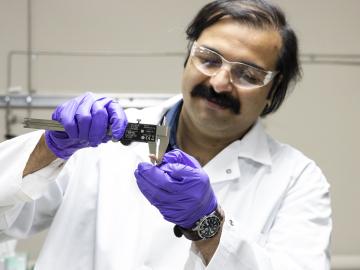
Chemical and environmental engineer Samarthya Bhagia is focused on achieving carbon neutrality and a circular economy by designing new plant-based materials for a range of applications from energy storage devices and sensors to environmentally friendly bioplastics.
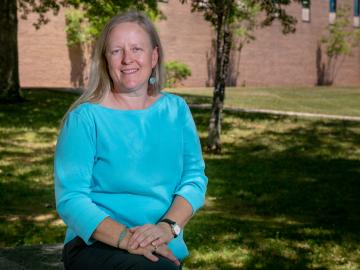
Science has taken Melanie Mayes from Tennessee to the tropics, studying some of the most important ecosystems in the world.
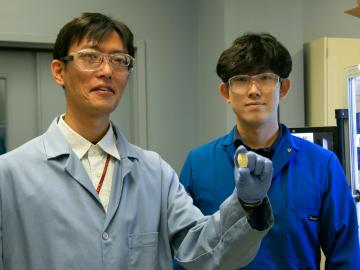
ORNL researchers have developed an upcycling approach that adds value to discarded plastics for reuse in additive manufacturing, or 3D printing.
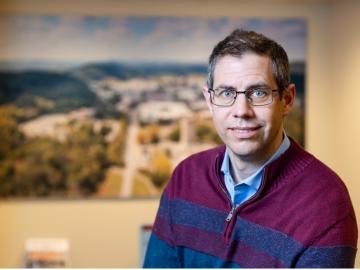
What’s getting Jim Szybist fired up these days? It’s the opportunity to apply his years of alternative fuel combustion and thermodynamics research to the challenge of cleaning up the hard-to-decarbonize, heavy-duty mobility sector — from airplanes to locomotives to ships and massive farm combines.

Tackling the climate crisis and achieving an equitable clean energy future are among the biggest challenges of our time.
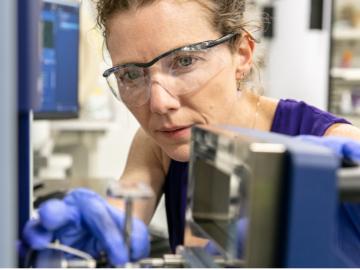
ORNL biogeochemist Elizabeth Herndon is working with colleagues to investigate a piece of the puzzle that has received little attention thus far: the role of manganese in the carbon cycle.

When Andrew Sutton arrived at ORNL in late 2020, he knew the move would be significant in more ways than just a change in location.
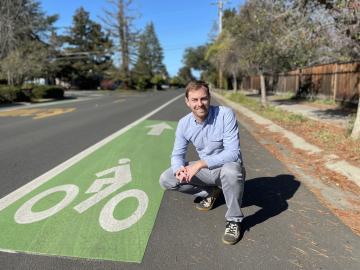
David McCollum is using his interdisciplinary expertise, international networks and boundless enthusiasm to lead Oak Ridge National Laboratory’s contributions to the Net Zero World initiative.
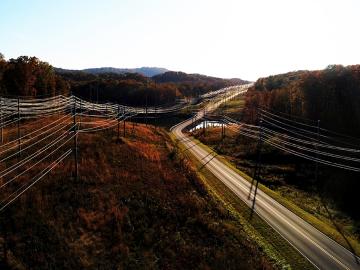
ORNL and the Tennessee Valley Authority, or TVA, are joining forces to advance decarbonization technologies from discovery through deployment through a new memorandum of understanding, or MOU.
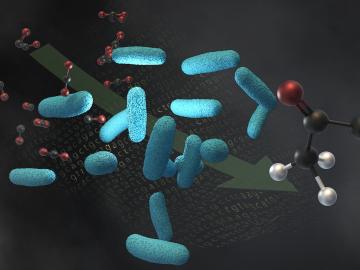
A team of scientists from LanzaTech, Northwestern University and ORNL have developed carbon capture technology that harnesses emissions from industrial processes to produce acetone and isopropanol


